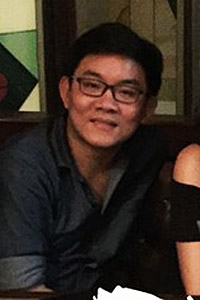One side effect of the Covid-19 pandemic that you may have overlooked (besides amassing a vast collection of hand sanitisers and exposing govt inefficiency -- kapow!) is more waste, especially plastic. Inevitably, it is exacerbated by our appetite for food delivery while we're WFH during this quasi-lockdown. The first wave saw an increase of plastic waste by 60% in Bangkok due to the higher demand for food delivery as estimated by Thailand Environment Institute in May last year. Thailand Research Development Insitute also claimed that one such order can contain up to seven pieces of plastic waste (so opt-out of utensils when you order please).
While we're encouraged to not let our guards down in terms of social distancing, frequent hand washing and whatnot, I think we should stay vigilant about our waste situation, as well. If you're wondering what to do with all the waste during Covid-19, here are a few pointers.
1. Precious Plastic Bangkok (fb.com/PreciousPlasticBKK) can handle those pesky bottle caps for you, upcycling them into new products such as bowls, coasters and plant pots. They are available for sale at Siam Discovery's Ecotopia. Money raised from the sale of these products then be used to fund Precious Plastic Bangkok's projects and workshops. Before you donate bottle caps to them make sure you clean them and they don't contain silicone parts. You can donate to them all year round at their headquarters at FREC Bangkok on Nakhon Sawan Road or find a drop-off spot near you at bit.ly/3bP11rf.
2. Send Plastic Home (fb.com/sendplastichome) encourages people to recycle plastic waste and cultivate their mindset for a long-term circular economy. The project, which began last May, provides drop-off points at malls and offices. They accept two types of plastic: stretchy (plastic bags) and hard (plastic food box, coffee cup, water bottles). Clean your plastic waste and let them dry before making your way to their bins.
3. PTT Station have launched Plastic Reborn. You know the drill. Collect, clean and let your plastic waste dry. Separate them into either stretchy or hard categories before heading to the bins. Examples of the former type are plastic bags, bubble wrap, food film wrap and zip-lock bags. Examples of the latter are food boxes, water bottles and coffee cups. Your plastic waste will be recycled and turned into products. They have three spots to start with. Their bins are on the ground floor of EnCo A Building, the ground floor of PTT HQ and at PTT Station Prachauthit-Lat Prao.
4. While you're tidying up your room to get the WFH vibe going, you may notice you've accumulated electric equipment that you no longer need. You can't just throw them away into any bin since improper disposal of such waste could result in harmful chemicals contaminating our soil and water sources. You let the pro handle them by dropping them at an e-waste drop point provided at many AIS stores across the country. Unwanted mobile phones, tablets, power banks, batteries, chargers and earphones that you drop will then be dismantled into small components based on their types from electronic circuits, silver, gold, plastic and so on. These materials will be entered into the recycling process accordingly to be reused later. Go to ewastethailand.com to find out where you can get rid of your e-waste (to make room for iPhone 12 Pro Max or Samsung S21 Ultra).
5. Used face masks can be hazardous if not properly disposed of. Bangkok Metropolitan Administration on Monday urged the public not to throw away used masks along with their household waste and not keep them around in their houses. City Hall also gives a few steps on how to dispose of used masks. First, take it off without touching the inside. Then fold the side that came into contact with your face down. Use the string that comes with it to tie around the folded mask to secure it. Put it in a bag, tie the bag tightly and write "surgical mask" on it. Leave it for the garbage truck to collect it or put it in designated orange bins, which can be found at more than 1,000 spots across Bangkok such as district offices, schools, hospitals, fire stations and parks. Look for biohazard symbols on these bins. The used masks will be incinerated at garbage plants in On Nut and Nong Khaem.
